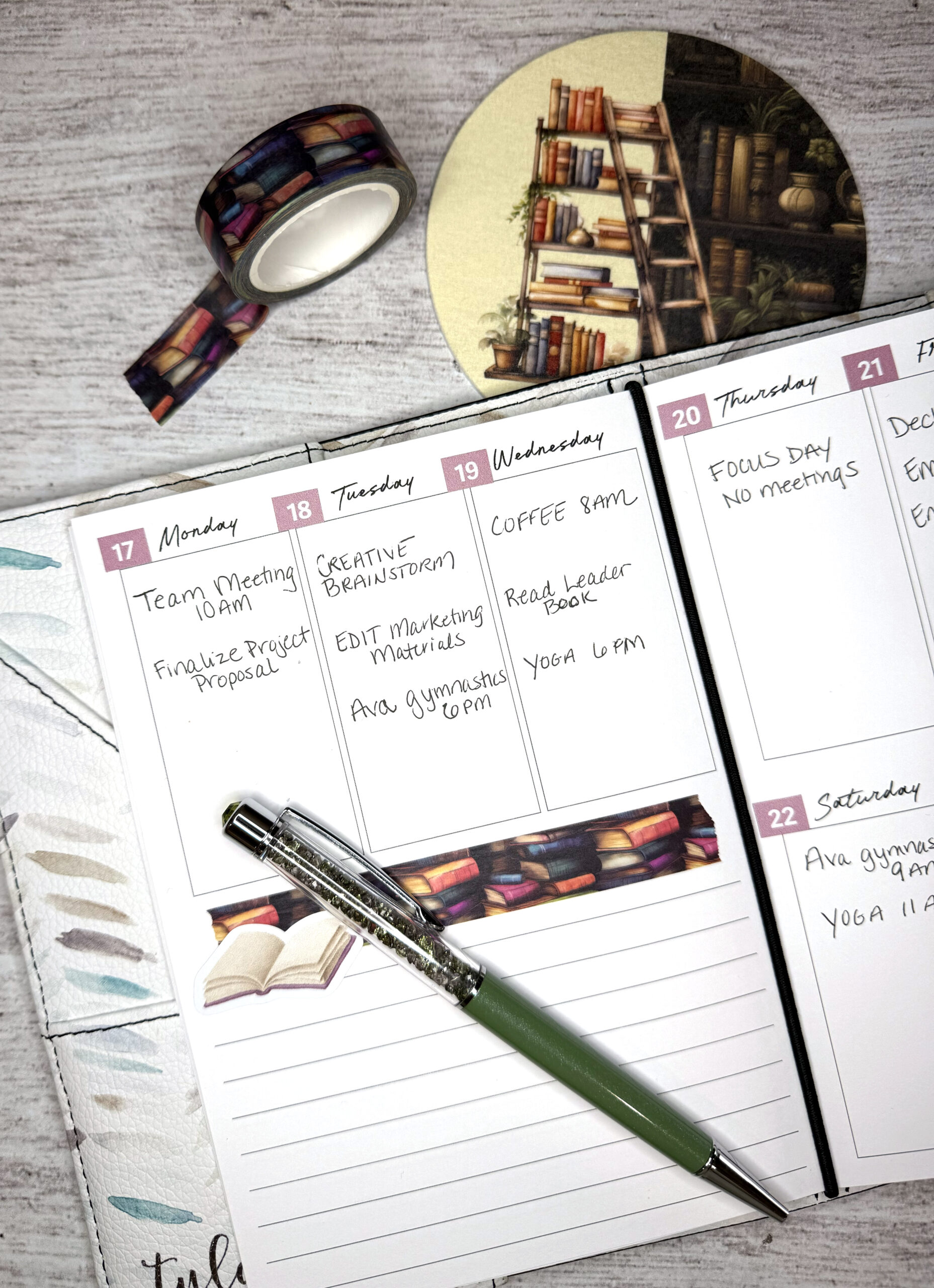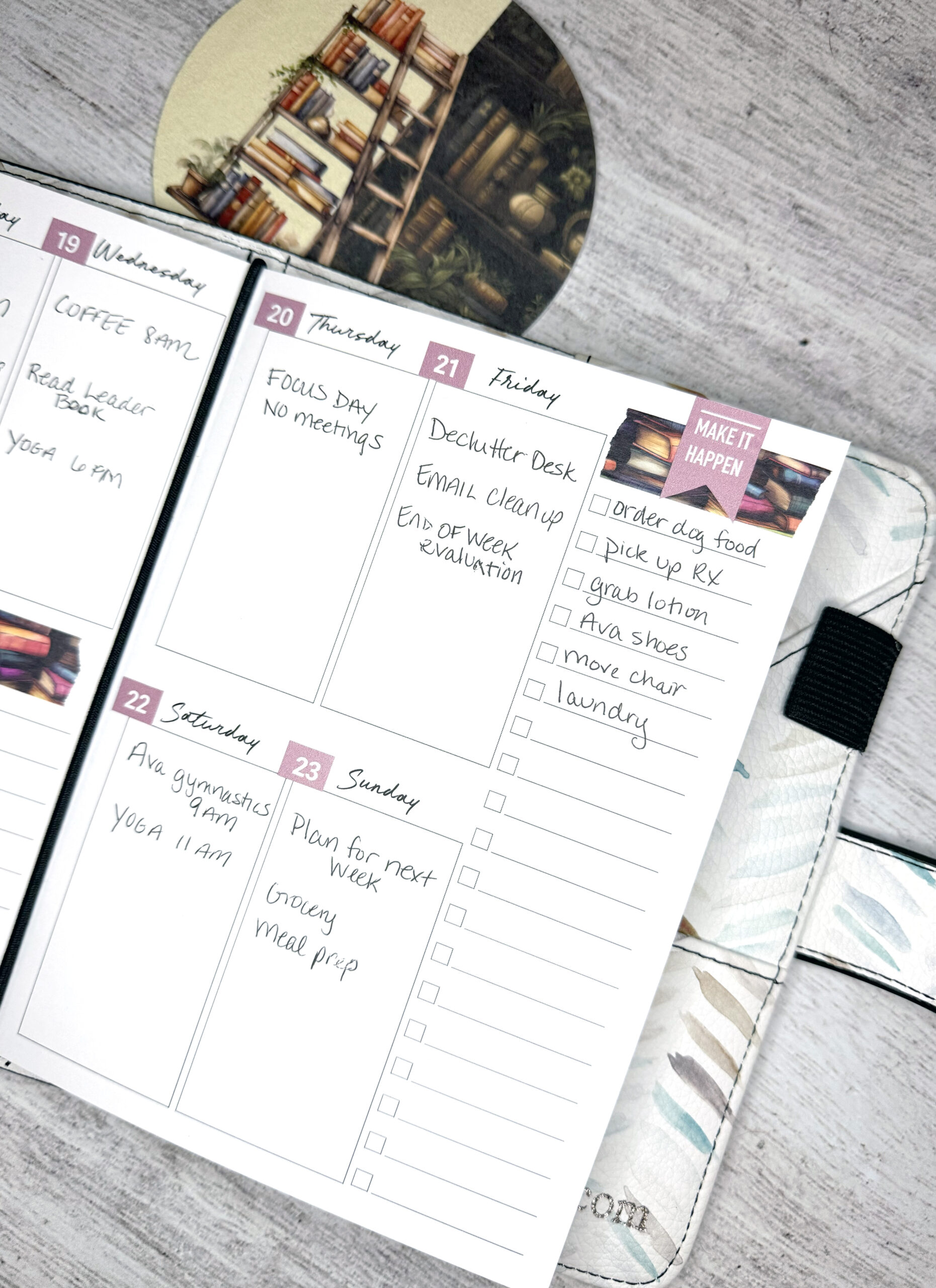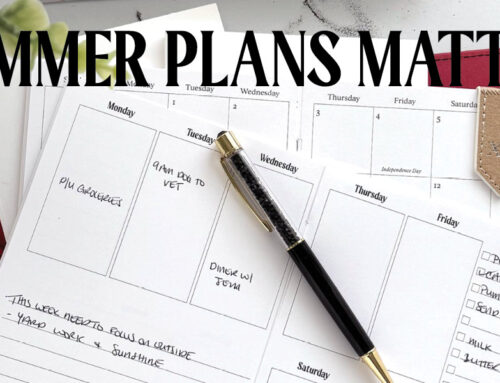Did you know that taking just a few minutes on Sunday evening to plan your week can significantly reduce your stress levels on Monday morning? A little preparation goes a long way in making your week more productive and less overwhelming.
1. Set Clear Goals for the Week
- Identify Priorities: Focus on the most important tasks or projects that need to be completed.
- SMART Goals: Ensure your goals are Specific, Measurable, Achievable, Relevant, and Time-bound for better results.
2. Break Down Larger Tasks
- Chunk It Up: Divide big tasks into smaller, more manageable steps.
- Daily Goals: Spread these smaller tasks throughout the week to maintain balance.
3. Use Time Blocking
- Schedule Blocks of Time: Dedicate specific periods for different tasks or activities.
- Theme Days: Organize your week with themes (e.g., Meeting Mondays, Creative Tuesdays) to streamline your workflow.
4. Prioritize Tasks
- Eisenhower Matrix: Sort tasks into four quadrants—Urgent-Important, Not Urgent-Important, Urgent-Not Important, and Not Urgent-Not Important—to make better decisions.
- Top 3 Priorities: Focus on completing your top three tasks each day.
5. Incorporate Buffer Time
- Allow Flexibility: Build in time for unexpected interruptions.
- Prevent Burnout: Give yourself breathing room to relax and recharge.
6. Track Progress
- Daily Check-Ins: Review progress each day and adjust plans accordingly.
- End-of-Week Reflection: Assess accomplishments, lessons learned, and improvements for the next week.
7. Stay Organized
- Use Planner Tools: Whether you prefer paper planners, digital apps, or a mix, find a system that works for you.
- Color Coding: Assign different colors to tasks for quick and easy reference.
8. Plan for Self-Care
- Include Self-Care Activities: Make time for exercise, hobbies, relaxation, and socializing.
- Balance Work and Life: A well-planned week includes time for YOU!
9. Plan Ahead
- Sunday Night Prep: Spend a few minutes reviewing and setting up your week.
- Review Weekly Goals: Adjust your plan as needed to stay on track.
10. Stay Flexible
- Adapt as Needed: Things don’t always go as planned, and that’s okay!
- Keep a Positive Attitude: A flexible mindset helps you navigate challenges with ease.








